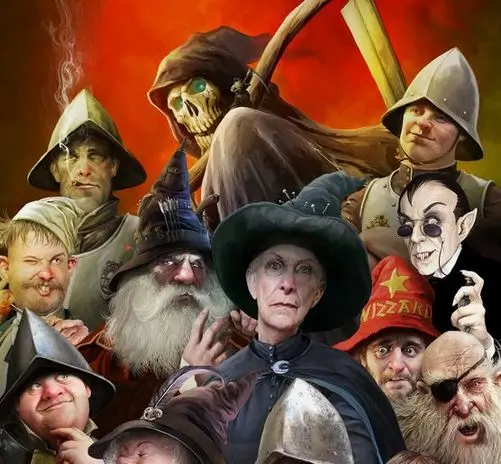Resurrection is a profound concept that spans various fields, from religion and mythology to science and pop culture. At its core, resurrection involves the idea of coming back to life or being revived after death. This intriguing idea has captured human imagination for centuries and continues to be a significant topic of discussion and exploration. This article delves into the different dimensions of resurrection, providing a comprehensive overview that is both informative and accessible.
What is Resurrection?
Resurrection, in its broadest sense, refers to the act of rising from the dead or returning to life after having died. The term is often associated with religious, spiritual, and mythical contexts but can also be explored through scientific and metaphorical lenses. While the concept may seem fantastical, it holds deep significance in many cultures and belief systems.
Resurrection in Religion and Mythology
Resurrection is a central theme in several major religions and mythologies, each interpreting the concept in its unique way:
- Christianity: In Christian belief, resurrection is primarily associated with Jesus Christ. According to the New Testament of the Bible, Jesus was crucified, died, and was buried. On the third day after his death, he rose from the dead—a foundational event known as the Resurrection. This miracle is celebrated annually on Easter Sunday and symbolizes the promise of eternal life for believers. The resurrection of Jesus is also viewed as a testament to divine power and redemption.
- Judaism: In Judaism, the concept of resurrection is less central but still significant. Traditional Jewish belief includes the resurrection of the dead, or “Techiyat HaMetim,” which is anticipated in the Messianic Age. This belief is derived from various biblical texts and is associated with the coming of the Messiah and the restoration of Israel.
- Islam: In Islam, resurrection is a key component of the faith. Muslims believe in the “Day of Resurrection” (Yawm al-Qiyamah), when all individuals will be resurrected from their graves for judgment. The concept is closely linked to the belief in an afterlife where people are rewarded or punished based on their deeds during their earthly lives.
- Hinduism: Hinduism approaches resurrection through the lens of reincarnation, or “Samsara.” According to Hindu belief, after death, the soul is reborn into a new body based on its karma (actions) from previous lives. This cycle of birth, death, and rebirth continues until the soul achieves “Moksha,” or liberation from the cycle.
- Buddhism: Similar to Hinduism, Buddhism teaches about reincarnation rather than resurrection. The cycle of rebirth, or “Samsara,” is influenced by karma. The ultimate goal in Buddhism is to achieve “Nirvana,” a state of liberation from suffering and the cycle of rebirth.
- Ancient Mythologies: Many ancient mythologies also feature resurrection themes. For example, in Egyptian mythology, Osiris, the god of the afterlife, was resurrected after being murdered by his brother Set. This mythological resurrection symbolized the renewal of life and the cyclical nature of existence.
Resurrection in Literature and Pop Culture
Resurrection has also made a significant impact on literature, film, and popular culture. It is a common theme in storytelling, often used to explore concepts of life, death, and transformation.
- Literature: Resurrection is a recurring motif in literature, representing rebirth, redemption, or the triumph of good over evil. Classic examples include Shakespeare’s Hamlet, where the protagonist contemplates mortality and resurrection, and Charles Dickens’ A Tale of Two Cities, which features a dramatic resurrection theme with the character of Sydney Carton.
- Film and Television: In modern media, resurrection is a popular theme in both science fiction and fantasy genres. Films like The Terminator series explore technological resurrection through advanced robotics, while fantasy series such as Game of Thrones feature magical resurrections. Television shows like Doctor Who and Buffy the Vampire Slayer also delve into themes of revival and life after death.
- Comics: Superhero comics frequently feature resurrection themes. Characters such as Superman and Spider-Man have experienced death and revival as part of their storylines. These resurrections often serve as pivotal moments in the characters’ arcs, emphasizing themes of perseverance and redemption.

Resurrection in Science: The Quest for Revival
While resurrection as described in religious and mythological contexts may remain within the realm of belief, science has made strides in exploring related concepts:
- Cryonics: Cryonics involves preserving individuals who have died from a legal perspective by cooling their bodies to very low temperatures. The hope is that future medical advancements will enable the revival of these individuals. Although cryonics is a subject of debate and remains experimental, it represents a scientific attempt to approach the concept of resurrection.
- Regenerative Medicine: Advances in regenerative medicine and biotechnology are working towards the revival of damaged tissues and organs. Techniques such as stem cell therapy and cloning aim to restore functionality and potentially offer solutions for conditions that were previously considered untreatable. While not resurrection in the literal sense, these technologies offer hope for extending life and improving health.
- Synthetic Biology: Synthetic biology aims to create new forms of life or modify existing ones. Researchers in this field explore the potential to bring “dead” biological systems back to functional states. While this research is still in its infancy, it holds promise for revolutionary changes in medicine and biotechnology.
The Metaphorical Aspect of Resurrection
Resurrection is also used metaphorically to describe various forms of renewal and transformation. For instance:
- Personal Growth: People often use the concept of resurrection to describe personal transformation or rebirth. This might involve overcoming adversity, reinventing oneself, or emerging stronger after a significant life challenge.
- Cultural Revivals: The idea of resurrection is used to describe the revival of cultural practices, traditions, or artistic movements. This can include the resurgence of interest in historical arts or the revival of traditional rituals and ceremonies.
- Business and Innovation: In the world of business, resurrection can refer to the revival of companies or brands that were considered defunct. Innovation and strategic changes can lead to a “resurrection” of a business, bringing it back to relevance and success.
The Enduring Appeal of Resurrection
Resurrection is a multifaceted concept that continues to fascinate and inspire across various domains. Whether viewed through the lens of religion, mythology, literature, science, or personal growth, the idea of coming back to life or being renewed speaks to fundamental human concerns about mortality, existence, and transformation.
While scientific and philosophical perspectives may challenge traditional views of resurrection, the concept remains a powerful symbol of hope, redemption, and the possibility of new beginnings. As long as humanity seeks meaning and understanding in the face of life and death, the allure of resurrection will continue to endure and evolve.




